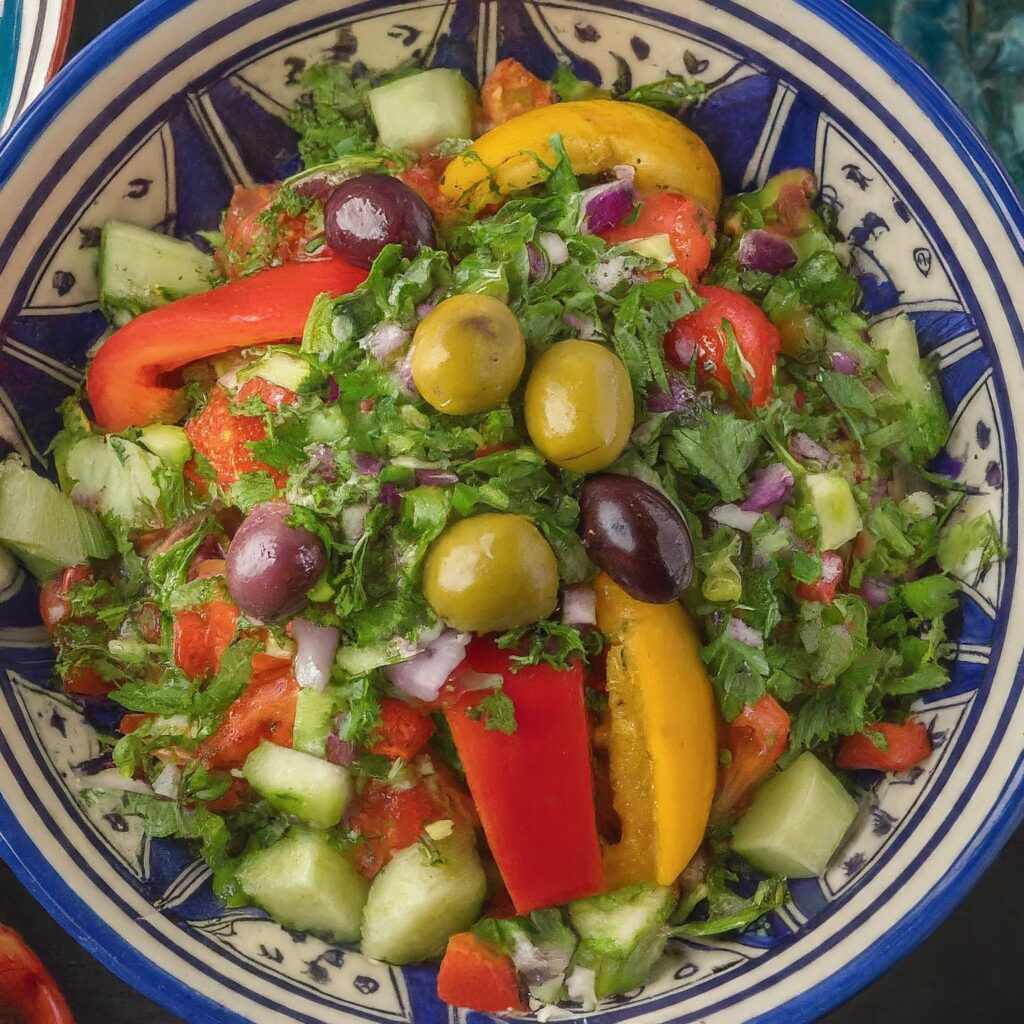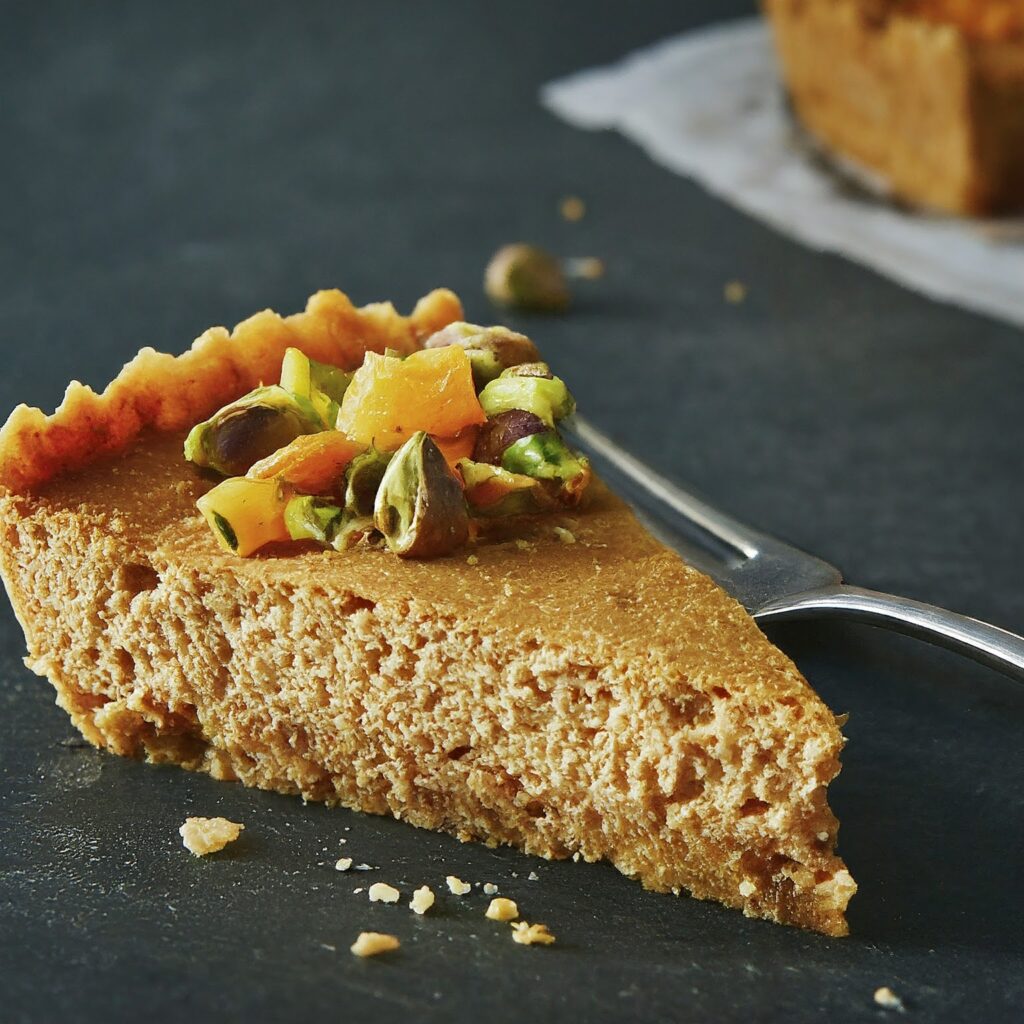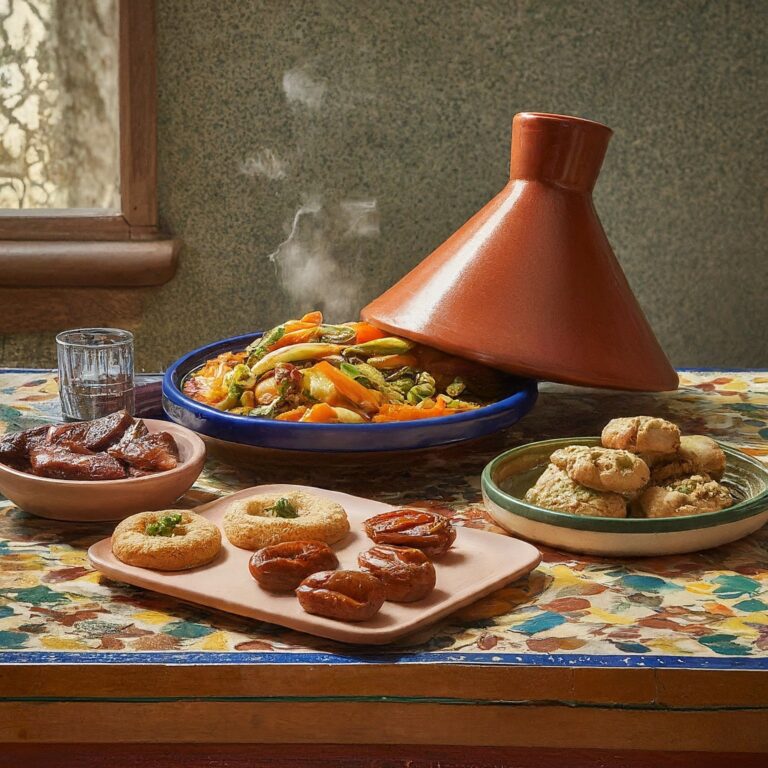Planning a gluten-free in Morocco trip? Don’t worry, you can still experience a delicious culinary adventure!
Living in this vibrant kingdom, I get to experience the best of both worlds: the bustling energy of Marrakech and the charming coastal town of Essaouira. But a few years ago, my world took a surprising turn when I discovered I had gluten intolerance. Let’s just say, navigating the world of Moroccan cuisine – a symphony of breads and tagines – suddenly became a delicious challenge!
Fear not, fellow gluten-free friends! Today, I’m here to share a glimpse into the wonderful world of gluten-free living in Morocco. Buckle up for a taste adventure that extends beyond bustling Marrakech and charming Essaouira, venturing into the culinary delights of cities like Fes, Casablanca, Tangier, and Agadir.
All Naturally Gluten-Free: A Look at the Heart of Moroccan Cuisine
Morocco’s culinary tapestry is a vibrant blend of Berber, Arab, and European influences. And guess what? A significant portion of this tapestry is all naturally gluten-free! Here’s why:
- Staple Ingredients: Traditional Moroccan cuisine heavily relies on fresh vegetables, fruits, legumes like lentils and chickpeas, and meat. These are naturally gluten-free ingredients that form the base of many delicious dishes.
- Couscous: This iconic Moroccan side dish is made from steamed semolina flour. While semolina technically contains gluten, the coarse texture of couscous often allows people with mild gluten sensitivities to enjoy it in moderation.
- Dietary Restrictions & Awareness: Gluten intolerance, though not as widely diagnosed as in Western countries, is certainly not unheard of in Morocco. Many families have traditionally catered to members with gluten sensitivities by focusing on naturally gluten-free staples.
But hold on, you might be thinking. What about all that mouthwatering Moroccan bread? It’s true, bread is a staple in Moroccan meals. However, there are ways to navigate this delicious obstacle!
- Msemen Variations: Msemen, a flaky flatbread, can be made with a combination of almond flour and tapioca flour, creating a delightful gluten-free alternative.
- Gluten-free Batbout: This soft, flatbread is traditionally made with wheat flour. However, enterprising bakeries in cities throughout Morocco are now offering gluten-free versions made with alternative flours like almond or chickpea flour.
Living Gluten-Free in Morocco: A Glimpse into the Growing Trend
The good news is that Morocco is gradually becoming more accommodating for those with dietary restrictions. Here’s what’s trending:
- Rise of Specialty Stores: Dedicated gluten-free stores are popping up in major Moroccan cities like Marrakech, Casablanca, Tangier, and Agadir. These stores stock imported gluten-free products, from flours and pasta to cookies and snacks.
- Restaurant Awareness: While still evolving, some restaurants, particularly those catering to health-conscious clientele, are starting to offer gluten-free options on their menus across the country.
- Increased Online Resources: Moroccan food bloggers and health enthusiasts are creating resources and recipe ideas specifically for those following a gluten-free diet.
However, a few things to keep in mind:
- Limited Availability: Finding a wide variety of gluten-free products outside major cities can still be challenging.
- Ingredient Labeling: Gluten-free labeling isn’t as standardized in Morocco as in some Western countries. It’s always best to double-check ingredients when shopping.
- Cross-Contamination: Be wary of potential cross-contamination in restaurants, especially when dealing with shared cooking equipment.

A Guide to Gluten-Free Eating in Morocco: Your FAQs Answered
Here are some frequently asked questions about gluten-free eating in Morocco:
Q: Can I find gluten-free bread in Morocco?
A: Yes, but it might be a bit of a challenge. Look for specialty stores in major cities that stock imported gluten-free bread alternatives. Some restaurants might also offer gluten-free bread options.
Q: Are there any Moroccan dishes that are naturally gluten-free?
A: Absolutely! Many tagines featuring vegetables, meat, and spices are naturally gluten-free. Just be mindful of broths that might be thickened with wheat flour. Lentil stews, bean salads, and grilled meats are also great options.
Q: What are some good substitutes for couscous?
A: Quinoa, cauliflower rice, or even roasted vegetables can be delicious alternatives to couscous.
Expert Tips for Gluten-Free Foodies in Morocco: From My Kitchen to Yours
Now that you have a better understanding of navigating gluten-free life in Morocco, let’s get down to some practical tips!
Embrace the Local Markets: Fresh, seasonal produce is your best friend! Explore the vibrant souks in cities across Morocco, from bustling Marrakech to laid-back Essaouira. Stock up on fruits, vegetables, legumes like lentils and chickpeas, and spices. These form the foundation of a delicious and naturally gluten-free Moroccan diet.
Befriend Your Local Butcher: Moroccan butchers offer a wide variety of fresh meats like lamb, chicken, fish, and even merguez (spiced sausages). These protein sources are naturally gluten-free and perfect for incorporating into tagines, stews, or grilled dishes.
Get Creative in the Kitchen: Don’t be afraid to experiment! Traditional Moroccan recipes often offer a base for gluten-free adaptation. For example, swap wheat flour for almond flour or chickpea flour in savory recipes like msemen or baghrir (semolina pancakes).
Embrace Healthy Fats: Olive oil is a staple in Moroccan cooking, and for good reason! It’s a healthy fat that adds richness and flavor to your dishes. Additionally, nuts and seeds are a great source of healthy fats and protein, perfect for adding texture and flavor to gluten-free creations.
Plan Ahead When Traveling: If you’re venturing outside major cities, pack some gluten-free snacks to ensure you have options on hand. Think nuts, dried fruit, or even pre-made gluten-free energy bars.
Download Translation Apps: Knowing a few basic Arabic phrases can be incredibly helpful, especially when shopping or communicating with restaurant staff. Translation apps can help you navigate menus and double-check ingredients with confidence.
Don’t Be Afraid to Ask! Moroccans are incredibly hospitable people. Don’t hesitate to politely explain your gluten intolerance and ask questions about ingredients. Most restaurants will be happy to accommodate your needs if possible.
Embrace the Gluten-Free Moroccan Feast!
Living gluten-free in Morocco might require a little extra planning and awareness, but it absolutely doesn’t have to limit your culinary adventures. Embrace the naturally gluten-free elements of Moroccan cuisine, get creative in the kitchen, and explore the growing selection of specialty stores and restaurants catering to dietary restrictions. With a little planning and these helpful tips, you can experience the full richness and deliciousness of Moroccan cuisine, gluten-free!
Now, let’s get back to that promised recipe: [Gluten-free Luscious Slices of Pleasure Moroccan Way]!
This dessert embodies the spirit of Moroccan sweets – fragrant, nutty, and naturally gluten-free. Imagine layers of crispy almond flour pastry filled with a sweet and nutty date paste, delicately spiced with warm Moroccan cinnamon.
dessert on a beautiful Moroccan plate. The slice has a flaky, golden crust and is dusted with powdered sugar.

Stay tuned for the full recipe in my next blog post, where I’ll walk you through every step of creating this delightful gluten-free Moroccan treat!
In the meantime, share your experiences and tips for navigating a gluten-free diet in Morocco in the comments below!
Besaha (Enjoy your meal) and until next time,

